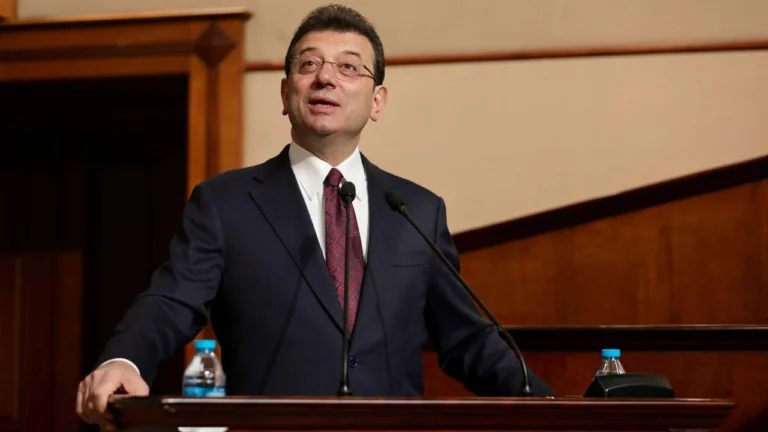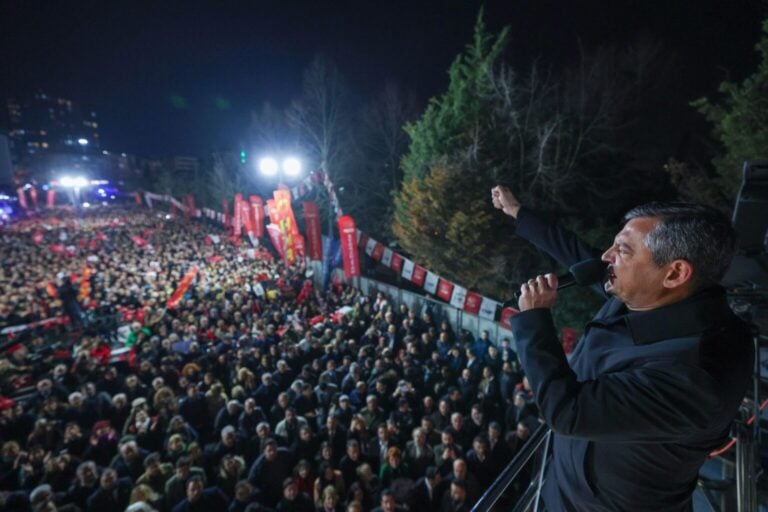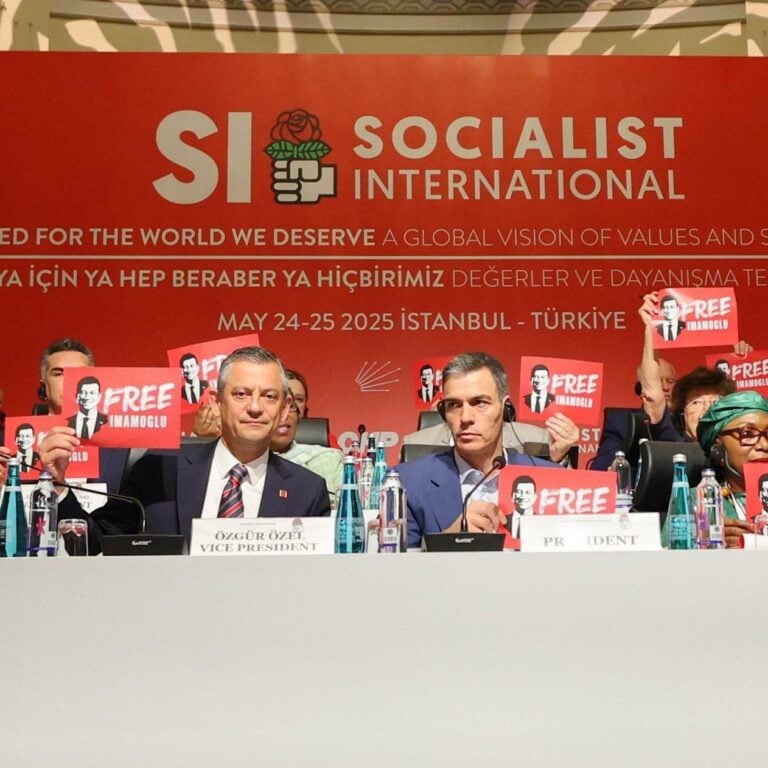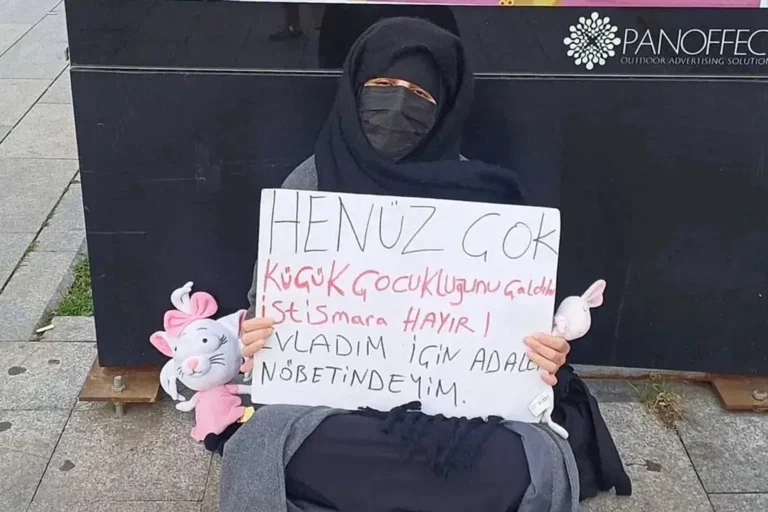The CHP’s 2024 local election victory, its first nationwide plurality since 1977, reshaped Turkey’s political landscape and put President Erdoğan on the defensive. Istanbul Mayor Ekrem İmamoğlu, now a three-time winner over the AKP, continues to face a barrage of investigations. Since the October 2024 appointment of Chief Prosecutor Akın Gürlek, authorities have intensified pressure on opposition figures, with 17 mayors arrested to date—16 from the CHP. Erdoğan’s crackdown on CHP sets out a full list of the defendants and their alleged offences.
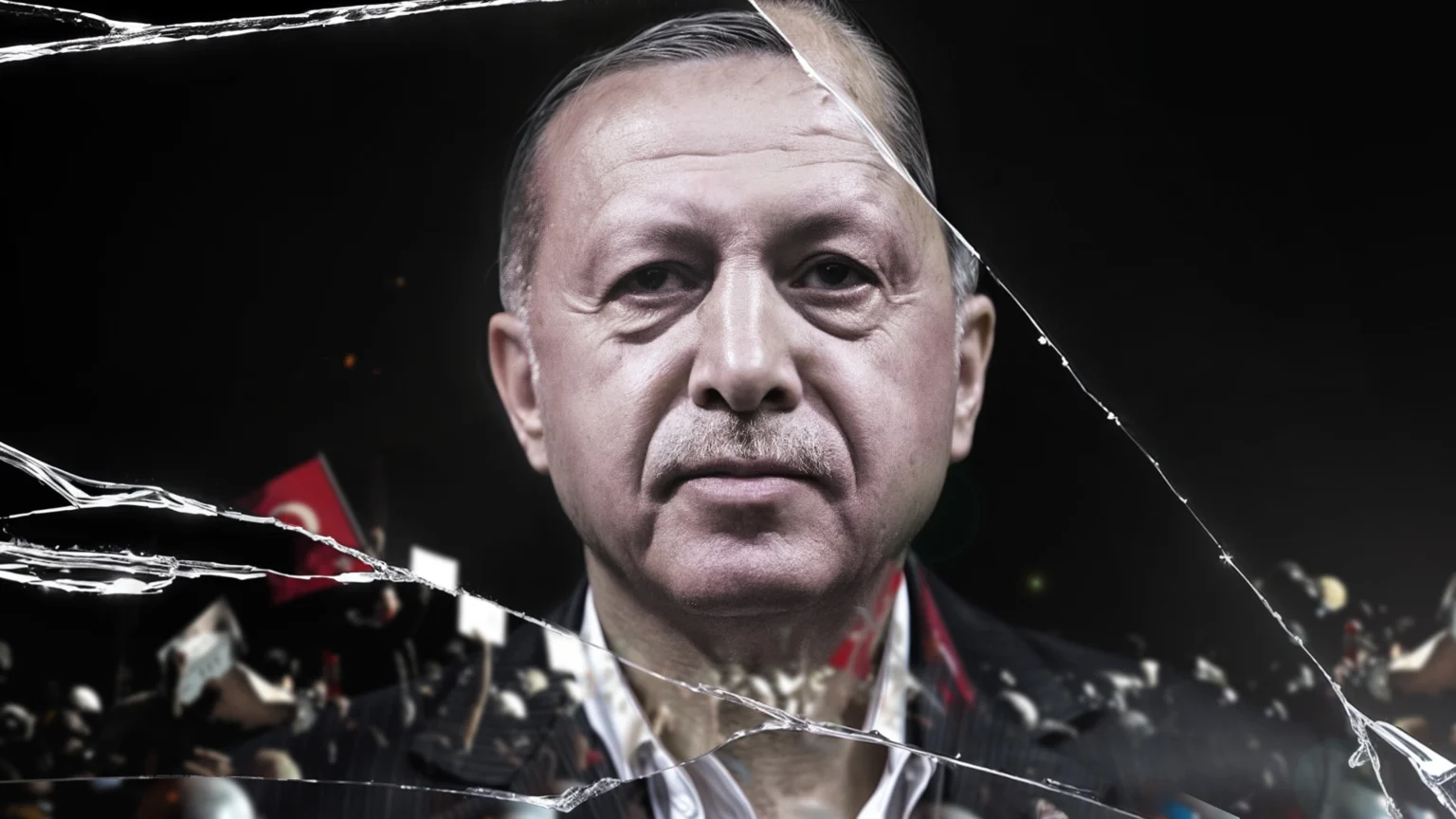 |
| The long read: How Erdoğan’s crackdown on CHP unfolded The long read: How Erdoğan’s crackdown on CHP unfolded |
In the 2024 local elections, the CHP achieved a historic victory, defeating the nation’s 22-year ruling party and, symbolically, President Recep Tayyip Erdoğan. Capturing 37.7% of the vote, the CHP secured a nationwide plurality for the first time since 1977, prompting Erdoğan to deliver the first concession speech of his tenure.
Following the CHP’s nationwide victory, President Erdoğan initially appeared calm and composed despite his party’s lackluster performance. That began to change, however, with the October 2024 appointment of Akın Gürlek as Istanbul’s Chief Prosecutor. Shortly after Gürlek took office, Esenyurt district Mayor Ahmet Özer was detained in the early morning hours and later arrested on terrorism charges. His post was handed over to a government-appointed trustee—a practice long associated with eastern, Kurdish-majority provinces but unprecedented in Istanbul.
Although Ahmet Özer’s arrest did not immediately signal that Turkey was on the precipice of a new chapter in its political history, the appointment of Istanbul’s Chief Prosecutor, Akın Gürlek, appeared to bring urgency to the institution. As of the time of writing this article, 17 mayors have been arrested—16 of them from the CHP.
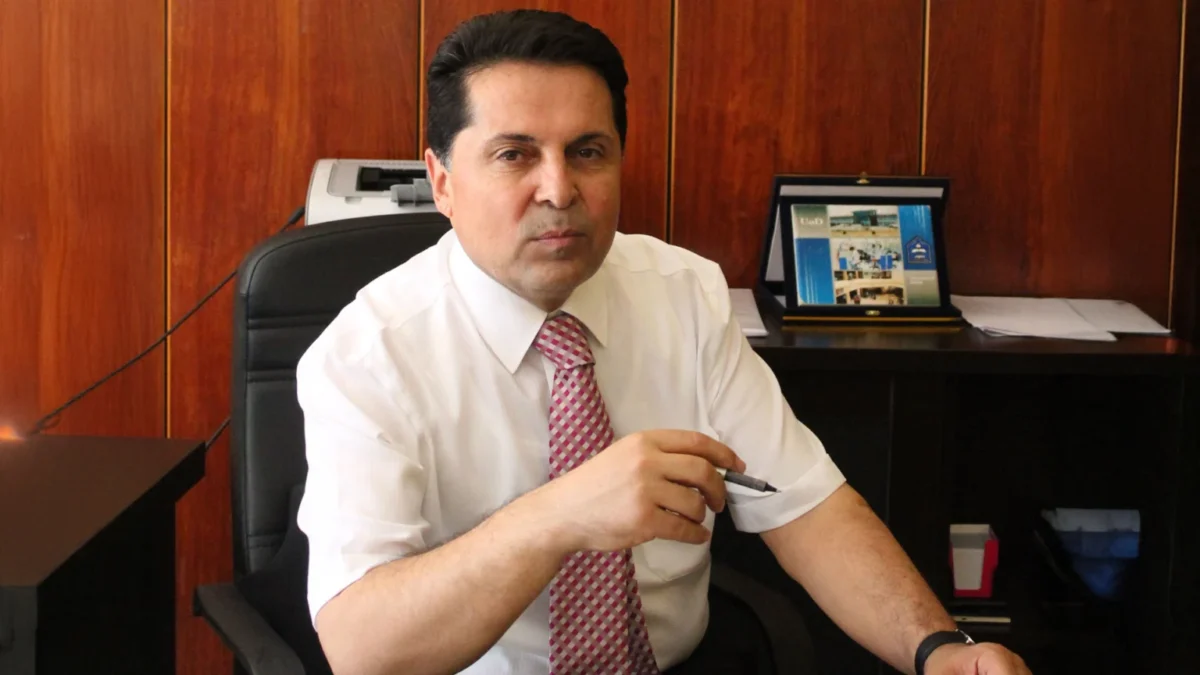
October 30, 2024: Ahmet Özer, Mayor of Esenyurt District, Istanbul
Ahmet Özer was elected mayor of Istanbul’s Esenyurt district in March 2024, aided by an informal “municipal accord” in which the pro-Kurdish DEM Party refrained from fielding a candidate, allowing him to draw Kurdish voter support. Such arrangements act as de facto coalitions while sparing the CHP from accusations of openly working with the DEM Party—a central theme in Erdoğan’s 2023 campaign, which sought to brand the opposition as collaborating with “terrorists.” Although no formal alliance existed, the HDP declined to run a presidential candidate in 2023, a move widely seen as bolstering the opposition.
Prosecutors allege Özer was placed under wiretap after documents seized from members of the PKK were passed to its leadership in northern Iraq’s Kandil region. These documents reportedly included notes from a meeting with jailed PKK leader Abdullah Öcalan, recommending Özer for the “democratic autonomy project”—a decentralization initiative promoting local self-rule in Kurdish areas. Prosecutors are seeking a 15-year prison sentence.
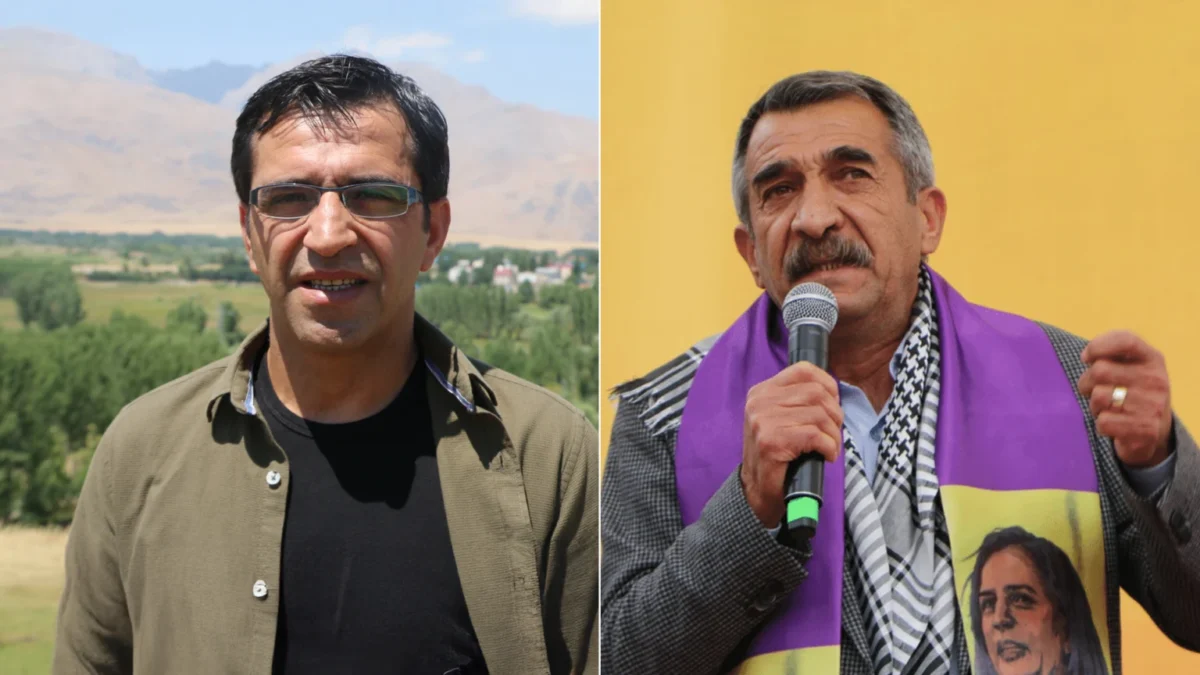
November 20, 2024: Cevdet Konak, Mayor of Tunceli Municipality, Tunceli | Mustafa Sarıgül, Mayor of Ovacık (District of Tunceli)
Both Cevdet Konak and Mustafa Sarıgül were removed from office on terrorism charges and replaced with trustees. Sarıgül, serving as a district mayor, became the second CHP official to be arrested, while Konak, the mayor of Tunceli Municipality from DEM Party, was the last from his party to be removed in subsequent waves of arrests. Both men were convicted of “membership in the PKK/KCK terrorist organization” and sentenced to 6 years and 3 months in prison.

January 13, 2025: Rıza Akpolat, Mayor of Beşiktaş District, Istanbul
Rıza Akpolat was detained in a corruption probe that also swept up 47 others. The investigation centred on claims that bribes were paid to secure lucrative government tenders, with prosecutors alleging the scheme was directed by crime boss Aziz İhsan Aktaş, a name that would resurface in subsequent waves of arrests. According to the indictment, Mr. Akpolat and several others are accused of steering contracts toward companies they controlled or to firms connected to their associates.

February 27, 2025: Alaattin Köseler, Mayor of Beykoz District, Istanbul
Köseler and 26 others were arrested on charges of bid rigging, forming or aiding a criminal organization, and aggravated fraud. Prosecutors allege widespread procurement irregularities across municipal subsidiaries and departments. According to the indictment, tenders violated transparency, competition, and confidentiality rules, with contracts rotated among interconnected firms tied by shared addresses, family links, or business partnerships.
Prosecutors are seeking prison terms ranging from 17 years and 6 months to 67 years and 3 months for Köseler.
Köseler, along with 12 others, was released on September 5 after the court reviewed his case and examined the evidence, making him the first—and so far the only—mayor to be released at the time of writing.
Köseler’s joy was short-lived, however, as the following day the prosecution filed an objection to his release, and he was taken back into custody a little over 24 hours later.
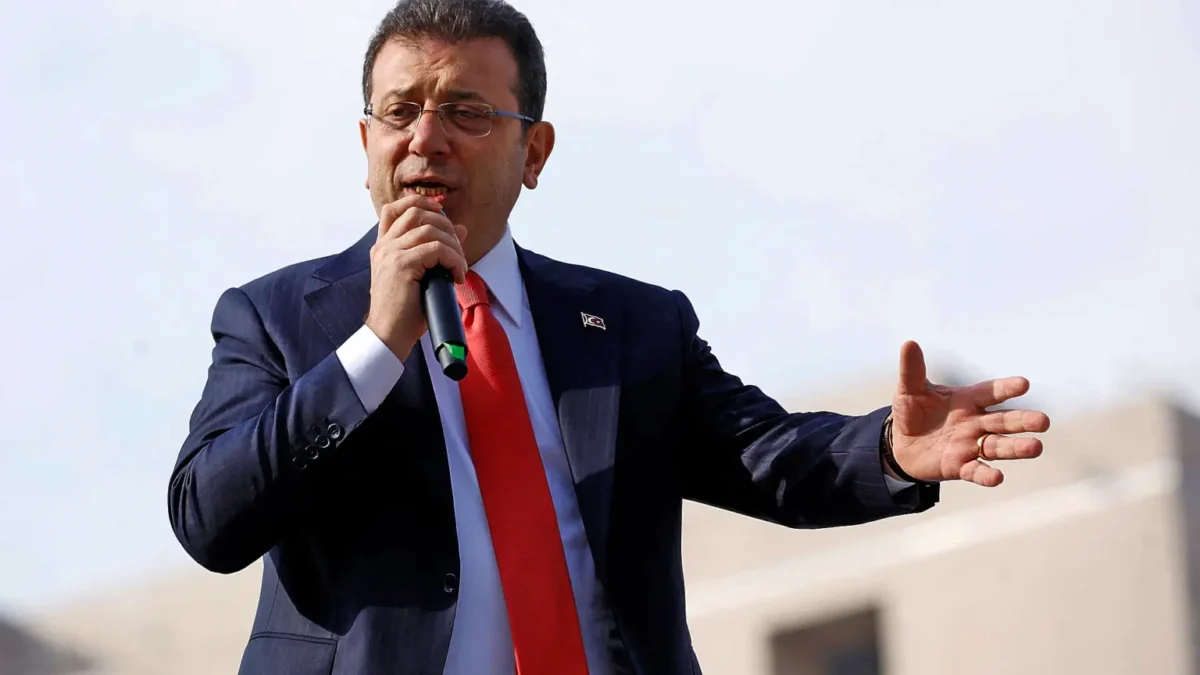
March 19, 2025: Ekrem İmamoğlu, Mayor of Istanbul, CHP’s 2028 presidential candidate
Ekrem İmamoğlu’s detention and arrest, by contrast, have had far-reaching and profound consequences. The three-time incumbent mayor had applied for the CHP primaries a month earlier, on February 21, 2025. İmamoğlu was running uncontested and was set to be declared CHP’s presidential nominee on March 23 in an election held exclusively for party members. However, as of the time of writing, İmamoğlu is currently facing trial in 6 major cases, in addition to having been convicted of 1, with the possibility of additional proceedings should he appeal past verdicts.
- “Fake diploma and fraud case”
The day after announcing his presidential candidacy, İmamoğlu became the subject of an investigation alleging he had obtained his university degree under false pretenses, using forged documents to gain admission to İstanbul University. On March 18, 2025—just one day before his detention—İstanbul University revoked his undergraduate degree.
On paper, the revocation disqualified him from running for president, as Turkey’s constitution requires candidates to hold at least a bachelor’s degree. İmamoğlu has challenged the decision in court, seeking to have his status reinstated.
According to the indictment, İmamoğlu’s original alma mater in Cyprus, Girne American University (GAU), was not recognized by Turkey’s Council of Higher Education at the time of his transfer to İstanbul University in 1990. Prosecutors allege the transfer was therefore unlawful and that he repeatedly committed “forgery of official documents” by submitting “fraudulently obtained documents.”
İmamoğlu’s lawyers dismissed the charges, arguing that GAU’s recognition status was not a criteria in 1990 and that the first ever legislation addressing recognition of foreign institutions only came into force in 1996—and even then did not prohibit such transfers.
On the morning of March 19, police raided İmamoğlu’s home at around 4 a.m., detaining him and searching the property. He was formally arrested on March 23 and transferred to Silivri Prison on Istanbul’s outskirts—an infamous facility long associated with political prosecutions.
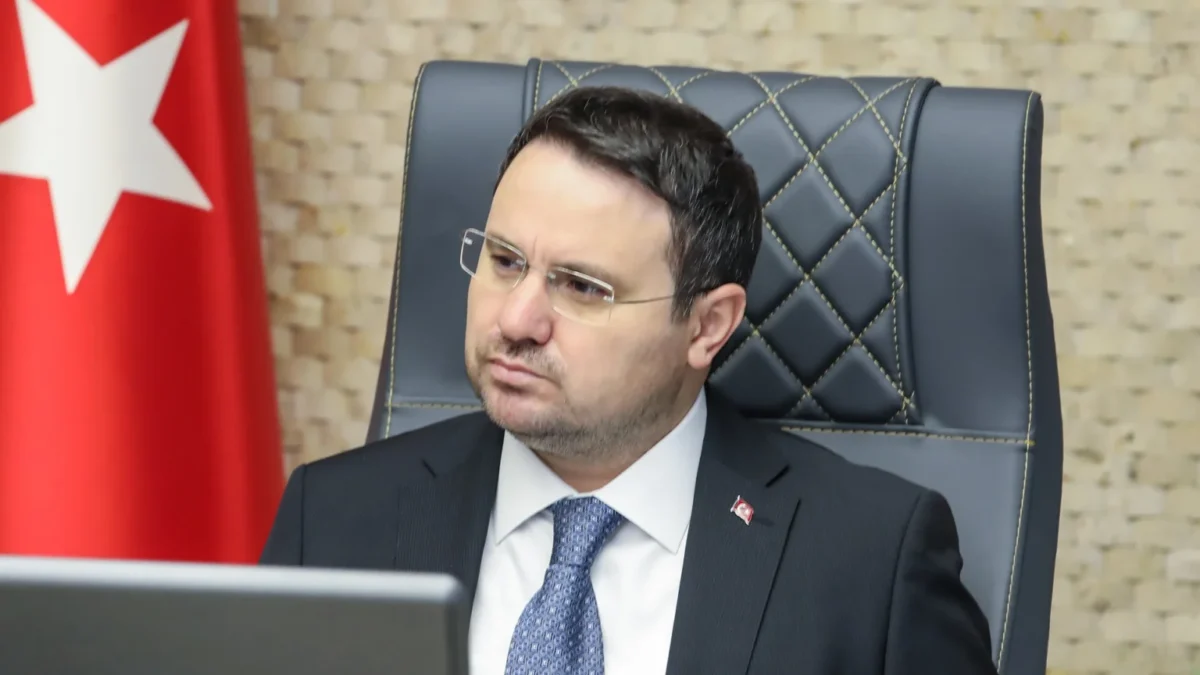
- “Threatening Istanbul’s Chief Prosecutor Akın Gürlek”
On January 20, CHP Youth Branch head Cem Aydın was escorted to court for questioning, despite no formal detention order. He was later investigated for “insulting a public official” after posting a video on X (formerly Twitter) in which CHP leader Özgür Özel referred to Prosecutor Akın Gürlek as a “mobile guillotine.” Aydın captioned it: “The anatomy of a mobile guillotine: Akın Gürlek.”
SEYYAR GİYOTİN’in Anatomisi: Akın Gürlek pic.twitter.com/LPWpNj87F2
— CHP Gençlik Kolları (@chpgenclikgm) January 19, 2025
The video drew sharp reactions. Both Özel and Istanbul Mayor Ekrem İmamoğlu issued statements critical of Gürlek. Speaking at a panel the same day, İmamoğlu declared:
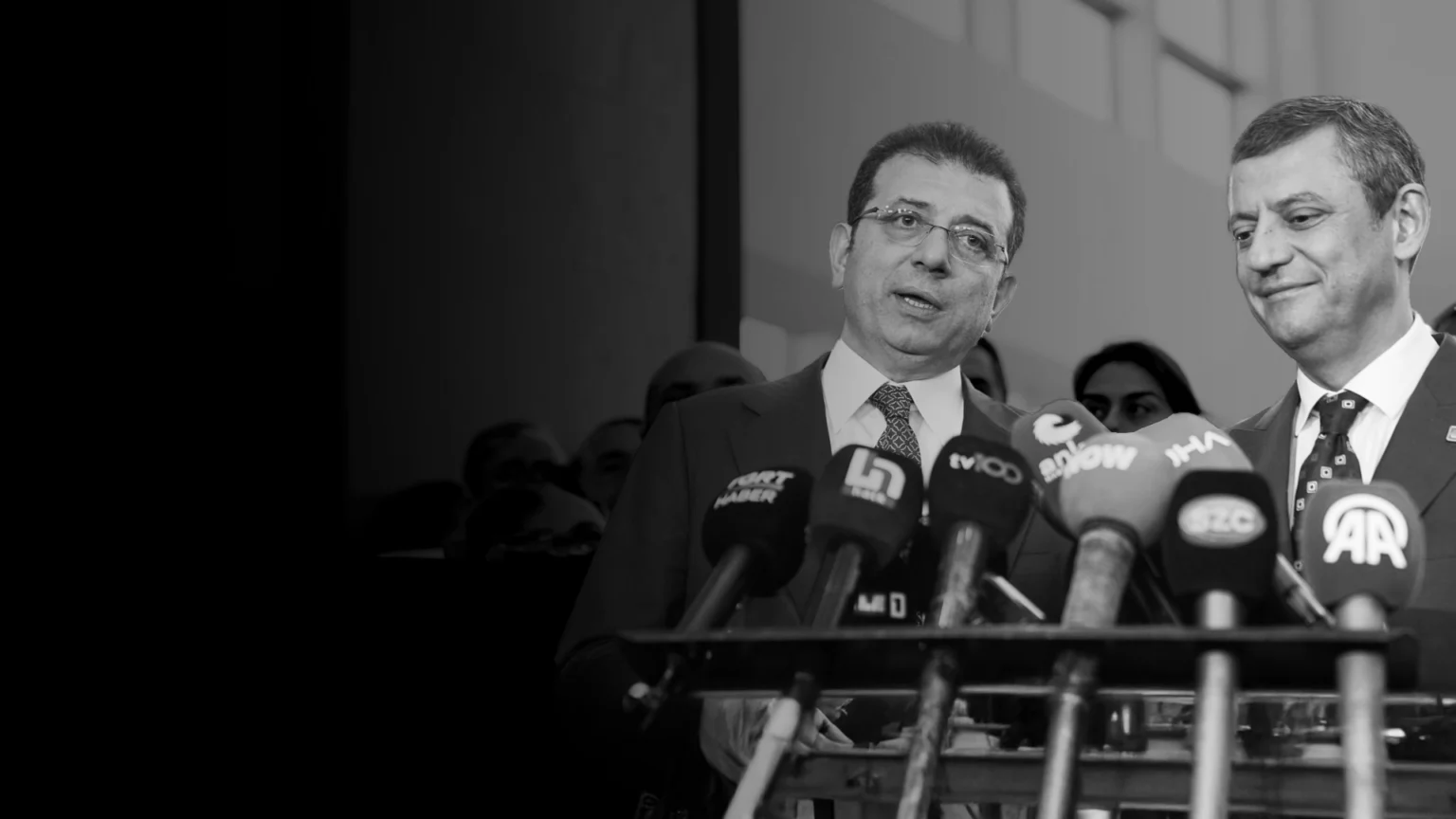
Prosecutors claimed İmamoğlu’s remarks amounted to “insults, threats, and incitement to terror,” endangering Gürlek and his family. That afternoon, the Istanbul Chief Prosecutor’s Office launched an investigation, seeking between 2 years 8 months and 7 years 4 months in prison, along with a lifetime political ban.
Since then, İmamoğlu has stood trial twice in Silivri Prison, where he remains held. The court convicted him of “insulting” and “threatening” the Chief Prosecutor but acquitted him of “inciting terror.” He was sentenced to 2 years and 15 days in prison, avoiding the lifetime political ban.
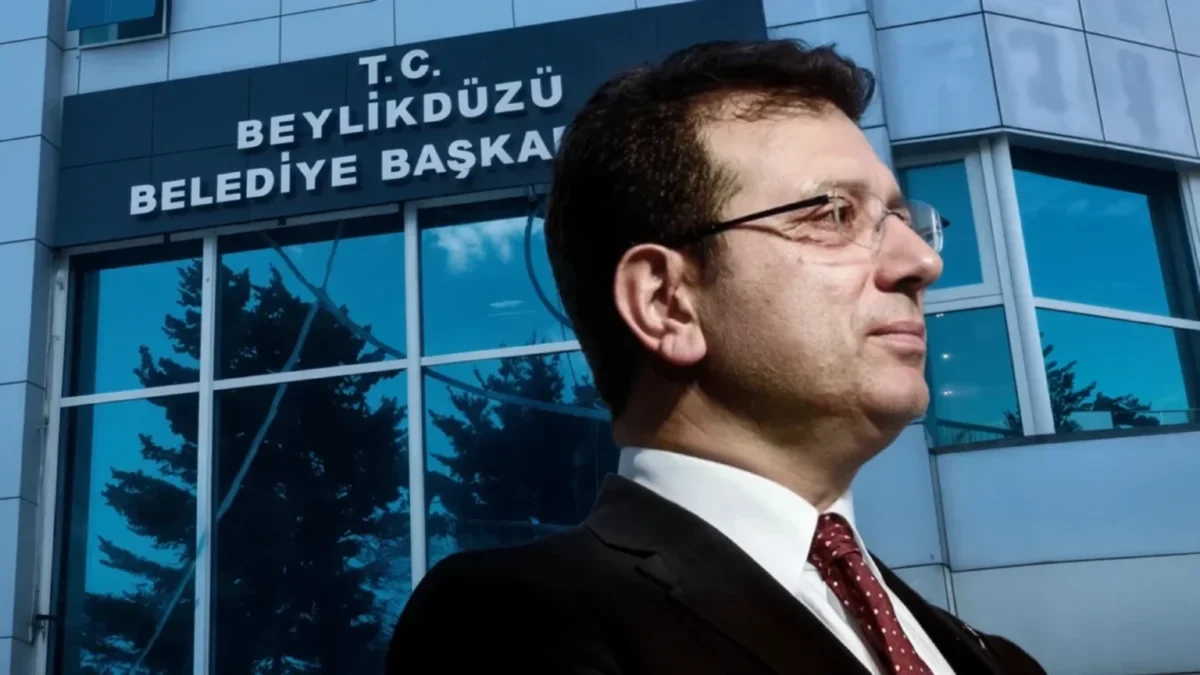
- Beylikdüzü “tender rigging case”
Before becoming Mayor of the Istanbul Metropolitan Municipality, which oversees all 39 districts, Ekrem İmamoğlu served as Mayor of Beylikdüzü district from 2014 to 2019. On December 29, 2015, Beylikdüzü Municipality issued a tender to hire personnel for its Cultural Centers, marking İmamoğlu’s first encounter with legal scrutiny. A company that participated but failed to win the contract later challenged the decision, arguing that the winning firm lacked the qualifications necessary to operate the events. The municipality reportedly rejected the formal complaint.
The matter was escalated to the Ministry of Interior, which launched an investigation, leading to a formal inquiry by the district prosecutor’s office. Prosecutors obtained a report from a subject-matter expert, referred to as S.B. to protect his identity, concluding that the winning company did not meet tender requirements. The name S.B. would reappear in subsequent investigations.
İmamoğlu and six others were summoned for questioning. He maintained that he had no involvement in the tender process, issued no instructions, and therefore “could not be held criminally liable.”
Following the testimonies, prosecutors filed an indictment charging İmamoğlu and the six others with “tampering with a public tender.” The indictment alleges their actions caused Beylikdüzü Municipality to incur an additional cost of 250,000 TL (approximately $85,000 at the time), resulting in a financial loss to the public. The case is ongoing, with prosecutors seeking 3 to 7 years in prison and a lifetime political ban for İmamoğlu. Multiple hearings have been postponed for further review.

- “The S.B. case”
On January 27, speaking at a press conference at Istanbul City Hall, İmamoğlu accused the ruling government of pressuring CHP-run municipalities through politically motivated prosecutions, sharply criticizing Justice Minister Yılmaz Tunç, President Erdoğan, and court-appointed expert S.B.
The conference focused on S.B., the subject-matter expert from the Beylikdüzü tender-rigging case. İmamoğlu publicly revealed his full name, Büyükcanayakın, calling him “Satılmış Büyükcanayakın” (“For Sale Büyükcanayakın”). He alleged that Büyükcanayakın had been instrumental in the arrests of Beşiktaş Mayor Rıza Akpolat and Esenyurt Mayor Ahmet Özer, and noted that despite Istanbul having nearly 1,900 registered legal experts, the same individual was repeatedly assigned to cases involving him. İmamoğlu further argued that S.B. had no qualifications and that he would forge reports:
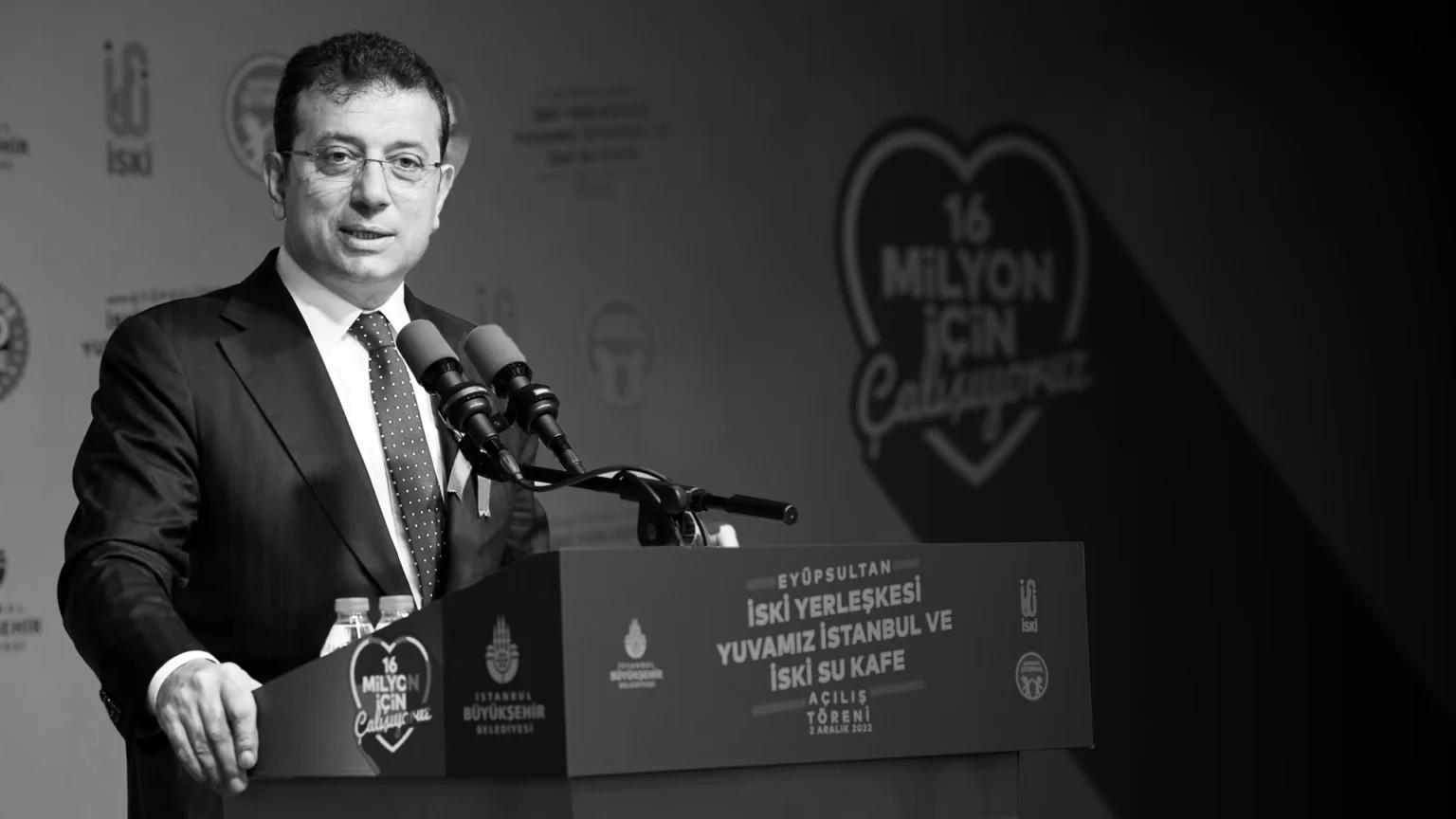
The Büyükçekmece District Prosecutor’s Office launched a disciplinary investigation into Büyükcanayakın on February 25 following a formal complaint by İmamoğlu.
Minutes after concluding the press conference, İmamoğlu himself was hit with a new investigation by the Istanbul Chief Public Prosecutor’s Office, charged with “attempting to influence a judiciary official, expert, or witness” and “attempting to interfere with a fair trial.” Prosecutors are seeking 2 to 4 years’ imprisonment.
Following the conference, journalist Barış Pehlivan of opposition-aligned Halk TV secured a phone interview with Büyükcanayakın and aired the recording. In it, Büyükcanayakın denied the allegations, claiming he had never targeted opposition figures and had no political affiliations. Shortly after the broadcast, Halk TV staff—Seda Selek, Suat Toktaş, Kürşad Oğuz, and Serhan Asker—were detained, facing charges of “unauthorized recording and dissemination of private conversations” and “attempting to influence a judicial process.” Pehlivan, Selek, Oğuz, and Asker were later released; Toktaş remains in custody.

- Improper spending investigation
On 14 November 2024, the Istanbul Chief Public Prosecutor’s Office opened an investigation into the Istanbul Metropolitan Municipality over alleged unauthorized spending on public events, particularly concerts featuring popular artists. Prosecutors said the probe was prompted by “claims on various news sites and social media platforms that certain events organized by the Metropolitan Municipality involved improper spending.” They alleged that roughly 20 million Turkish Liras (around $580,000 at the time) were spent on three concerts, potentially constituting overpayment and causing public loss.
Similar allegations were raised against Beykoz Municipality and its then-mayor, CHP’s Alaattin Köseler, with prosecutors claiming the district spent 20 million Turkish Liras on three Republic Day concerts. Köseler rejected the claims, stating that the total payment to artists for all three concerts was 2,765,000 TL (about $80,000), while total expenditures—including artist fees, personnel, technical equipment, and other costs—totaled 9,208,000 TL (around $266,000), all fully accounted for.
- Terrorism charges
In the pre-dawn hours of March 19, around 4 a.m., dozens of police officers raided İmamoğlu’s private residence. The “terror investigation” would become one of two major cases ultimately used to justify his detention. Following a mandatory medical check, İmamoğlu was taken to Istanbul’s central police headquarters and gave a five-hour statement to the city’s Anti-Terror Branch (TEM), a unit typically tasked with investigating armed militant networks.

As İmamoğlu was being taken into custody, he recorded a message and shared it on social media:
“It pains me to say this: a handful of people seeking to hijack our nation’s will have turned my beloved police — our country’s guardians of security — into tools of oppression, sending hundreds to surround my home, the home of 16 million Istanbul residents. We are facing blatant tyranny, but I want you to know that I will not falter. I love you all deeply, and I place my trust in my people.”
The video quickly went viral in Turkey and arguably sparked what would become one of the largest protests in the nation’s history.
⠀
Prosecutors alleged that İmamoğlu and several senior municipal officials had supported the PKK and its umbrella group, the KCK, through a so-called “municipal accord.” According to investigators, the scheme involved the pro-Kurdish DEM Party backing CHP candidates in the March 2024 local elections. Officials claimed that this cooperation, along with the hiring of individuals allegedly linked to the HDK (a civil society platform viewed by Turkish courts as aligned with the PKK) and financial ties to the Reform Foundation NGO, was designed to expand PKK influence in Turkey’s largest cities.
Much of the questioning relied on anonymous witness testimony, a controversial practice often used in political cases and criticized by human rights monitors. Similar methods had been applied in a separate corruption probe against İmamoğlu. He rejected the charges, insisting that the “municipal accord” was initiated by the DEM Party, and that the CHP did not require intermediaries to coordinate with other opposition groups.
During the interrogation, İmamoğlu described some questions as insulting—such as inquiries about alleged illegal travel abroad or whether relatives were involved in terrorist organizations. He denounced the reliance on secret witnesses as “fabricated, conspiratorial, and false,” while his lawyers argued that the case depended on unverifiable statements, ambiguous mobile phone data, and financial reports from MASAK, Turkey’s Financial Crimes Investigation Board, which critics claim is frequently used to target political opponents.
As of August 2025, the terrorism investigation against Istanbul Mayor Ekrem İmamoğlu remains ongoing, though he has not been formally charged with terrorism offenses.

- Corruption and bribery case
The corruption and bribery case that ultimately led to İmamoğlu’s arrest was the more extensive of the two major investigations against him, consolidating several earlier probes and allegations into a single proceeding. It began in early 2024, shortly after the March local elections, alleging widespread misconduct within the Istanbul Metropolitan Municipality.
The investigation gained momentum when businessman Murat Gülibrahimoğlu, reportedly close to municipal bureaucrats and contractors, agreed to a controversial plea deal, claiming a corruption ring had operated under İmamoğlu’s leadership. He alleged that large sums of cash had been transferred abroad, particularly to London, and identified himself as a central figure. Gülibrahimoğlu, once bankrupt, was said to have grown wealthy after İmamoğlu’s first mayoral term in 2019 and to have been awarded all excavation tenders. He reportedly had close ties to Tuncay Yılmaz, manager of İmamoğlu’s construction company, and Fatih Keleş, a senior municipal bureaucrat, with frequent meetings allegedly involving bribes in exchange for building permits and other municipal approvals. Over 100 other individuals—including municipal employees and businesspeople accused of illicit tender practices—were detained during coordinated raids.

The scope of the investigation expanded beyond municipal finances. In March 2024, a video emerged showing CHP officials counting cash at the Istanbul Provincial Headquarters. Prosecutors treated the footage as evidence of political finance violations, despite CHP officials explaining the funds were intended for a legitimate real estate purchase—a practice common in Turkey.
In April 2025, CCTV footage from Istanbul’s Le Méridien Hotel showed İmamoğlu entering a meeting while his bodyguards covered camera lenses. Government sources claimed this involved the transfer of large sums in a wheeled hard-case suitcase. Prosecutors focused on obstruction of evidence, charging İmamoğlu with leading a criminal organization, manipulating tenders, extortion, aggravated fraud, and data breaches, while also targeting the hotel manager and head of security. CHP Chair Özgür Özel rejected these claims, stating the suitcase contained a legally acquired signal jammer used for security and confidentiality, noting such devices were standard in many municipalities, including those led by the AKP.
Prosecutors alleged several individuals—Adem Soytekin, Fatih Keleş, Hüseyin Köksal, and Ertan Yıldız—attended the hotel meeting and later faced arrest, deepening the investigation. Yıldız, who later became a consultant to İmamoğlu, was initially detained, then released to house arrest following a plea deal. He made two confessions alleging “fake invoices,” illicit property sales, and “pay-to-play” corruption, though evidence later showed he had been abroad at the time of the meeting.
Hüseyin Köksal, associated with İBB Medya AŞ, described the company as central to municipal advertising operations, overseeing billboards, sponsorships, and media budgets. Prosecutors pressed him on potential favoritism and tender manipulation, though Köksal denied involvement and limited his work to private-sector contracts, while acknowledging awareness of complaints about advertising permit blocks.
Murat Abbas, general manager of Kültür AŞ, a municipal subsidiary organizing cultural events, was detained on 19 March 2025 and gave testimony under a plea deal, alleging senior officials misused public resources, collected funds from companies ahead of elections, and manipulated tenders. Abbas was released under judicial controls, including travel restrictions. Prosecutors claimed Kültür AŞ tenders favored pre-selected firms in exchange for illicit payments.
Adem Soytekin provided pivotal testimony in June and July 2025, outlining a network of political and financial collusion dating back to İmamoğlu’s tenure as Beylikdüzü mayor. He alleged contractor Muzaffer Beyaz acted as a key intermediary, with project plans altered and zoning approvals manipulated to benefit selected companies. Fraudulent invoices inflated project costs, and kickbacks were routed through intermediaries. Soytekin described a hierarchical system in which municipal decisions, supplier contracts, and internal audits were structured to benefit an informal network, with financial gains supporting both personal enrichment and İmamoğlu’s presidential ambitions.
Soytekin also alleged that CHP’s municipal headquarters—the building shown in the CCTV footage counting cash—was purchased using funds diverted from multiple municipalities. He provided documents, financial records, property transfers, and loan arrangements to support his account, highlighting a system dependent on compliant bureaucrats and legal maneuvers to conceal irregularities. By admitting his own role and identifying others, Soytekin secured his release from pre-trial detention. His testimony has become a central element of the investigation.

March 19, 2025: Mehmet Murat Çalık, Mayor of Beylükdüzü District, Istanbul
Istanbul Metropolitan Municipality Mayor İmamoğlu was not the only official detained on March 19. Three other district mayors were also taken into custody and subsequently arrested on March 23. Among them was Mehmet Murat Çalık, District Mayor of Beylikdüzü.
Çalık faces charges including forming or being a member of a criminal organization, bribery, extortion, aggravated fraud, illegal data acquisition, and interference with public tenders. The investigation relies on whistleblower testimonies alleging that Çalık, alongside other municipal officials, coerced businessmen into providing kickbacks and engaged in illicit transactions, laundering proceeds through intermediaries.
In addition to corruption allegations, Çalık is implicated in the “municipal accord” investigation, accused of supporting terrorist organizations, including the PKK/KCK.
Prior to his arrest, Çalık had a history of serious health issues, including acute leukemia and lymphoma, for which he had undergone treatment. During his detention, his condition worsened, and he reportedly lost approximately 18 kg (39 lbs).

In early July 2025, Çalık was transferred to a hospital due to severe health complications. His mother was only able to see him through a barred hospital window. Despite undergoing an angioplasty on 10 July and being placed in intensive care, his request for release was denied, and he was returned to prison on 11 July. Reports indicated his hands were shackled during the transfer, prompting public outcry.

March 19, 2025: Resul Emrah Şahan, Mayor of Şişli District, Istanbul
Resul Emrah Şahan faced charges of “aiding an armed terrorist organization,” specifically the PKK, linked to his alleged involvement in a 2013 municipal accord during the first Kurdish peace process. Prosecutors claimed he had supported a PKK-organized event that year, though Şahan denied any participation or involvement.
Following his removal from office, the government appointed a trustee to replace him—a move legally reserved for mayors accused of terrorism, bypassing the municipal council’s authority to elect an acting mayor. His district became one of three CHP-run municipalities lost amid the recent wave of arrests.
Şahan’s lawyers argued the charges were baseless, noting that the PKK formally declared self-dissolution in May 2025, making the allegations outdated, and contended that his continued incarceration undermined democratic norms. As of August 2025, Şahan remained in Silivri Prison, while legal debates over the legitimacy of his detention continued.

May 31, 2025: Kadir Aydar, Mayor of Ceyan District, Adana
The Istanbul Chief Public Prosecutor’s Office charged Aydar with “extortion and coercion,” among other offenses. He was temporarily removed from office and later formally arrested, one of five mayors taken into custody that day.
Aydar was first elected mayor of Ceyhan in the 2019 local elections but was initially barred from taking office after Turkey’s Supreme Election Council annulled his mandate over a prior criminal record.
In a separate case, an appeals court upheld a 2-year, 1-month prison sentence against Aydar for coercing a man to sign a promissory note and facilitating a money transfer to a relative through another person’s bank account.
Following his arrest, speculation arose that a government trustee would be installed to run the municipality. The Adana Governor’s Office later dismissed these claims. Instead, the CHP-dominated municipal council appointed Aydar’s cousin, Sevil Aydar Yıldız, as acting mayor, keeping the municipality under opposition control.

May 31, 2025: Oya Tekin, Mayor of Seyan District, Adana
Tekin faces charges of extortion by coercion and forming an organization with the intent to commit criminal acts. The case centers on allegations involving businessman Aziz İhsan Aktaş, identified by authorities as the head of a criminal network operating across multiple municipalities. Aktaş, detained in January 2025, entered a plea deal, cooperating with prosecutors in exchange for leniency and providing testimony that led to arrest warrants for 47 others, including five opposition mayors.
Prosecutors claim that Aktaş alleged he had given $1 million to Celal Tekin, Oya Tekin’s husband, and CHP parliamentarian Burhanettin Bulut to secure payment of a 75 million TL (about $1.8 million) municipal bill owed to him. Tekin told investigators that she had met Aktaş only once, in connection with municipal contract payments, and denied any knowledge of the alleged transaction, insisting she had never authorised or participated in it.
Tekin explained that Aktaş’s municipal contracts predated her tenure and that the municipality’s main challenge was waste collection, which had been disrupted under the previous administration due to delayed payments to Aktaş. She emphasised that she was not involved in day-to-day financial administration.
Acknowledging an ongoing dispute with Aktaş, Tekin said that because the municipality lacked sufficient funds, his services were sometimes interrupted, and he had threatened her and her husband over delayed payments. She told investigators:
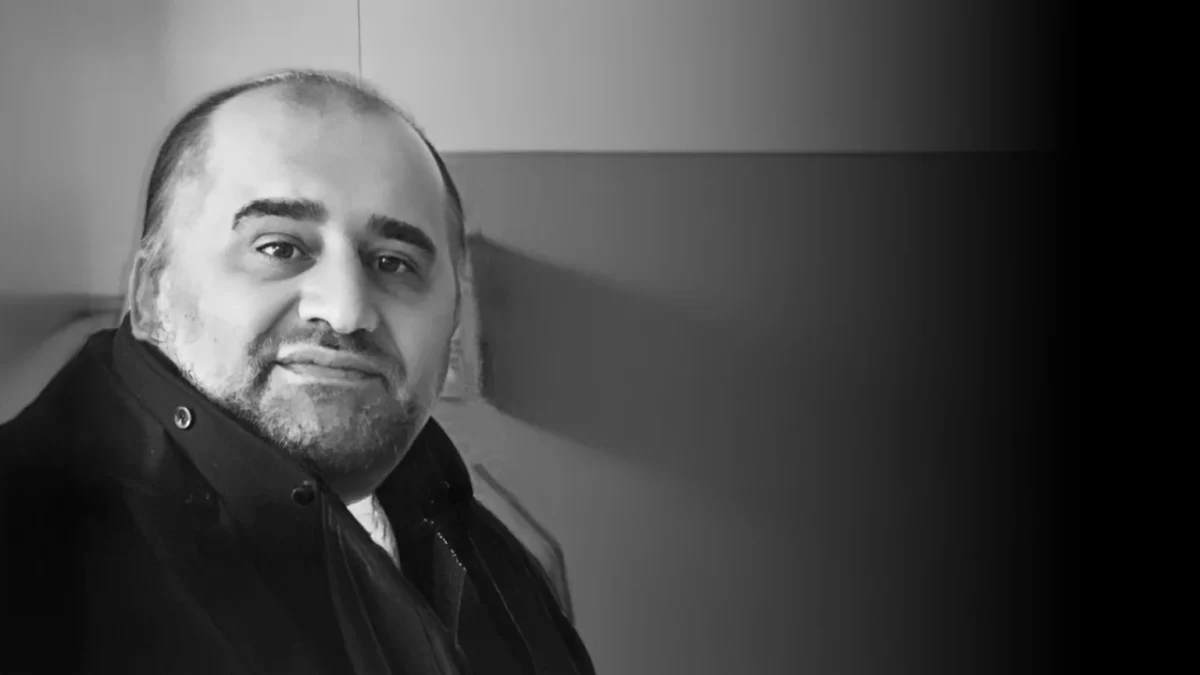
Tekin further noted that the municipality still owed Aktaş’s company 500 million lira, with partial payments made when tax revenues were collected in July 2024. She confirmed that she had repeatedly informed local authorities, including the governor and district governor, about these threats and harassment.
Following her statement, Tekin’s lawyers filed a procedural objection, arguing that the alleged offences occurred in Ankara and Adana, not Istanbul, and that the Istanbul Chief Public Prosecutor’s Office therefore lacked proper jurisdiction.

May 31, 2025: Utku Caner Çaykara, Mayor of Avcılar District, Istanbul
Çaykara faces allegations of bribery and bid manipulation as part of a broader municipal corruption investigation. Prosecutors claim he solicited 5.5 million Turkish lira and 16 vehicles from associates of businessman Aziz İhsan Aktaş, allegedly in exchange for facilitating municipal contracts or payments to Aktaş’s companies.
In his statement to investigators, Çaykara denied any involvement in municipal tender processes, which are handled by the relevant departments under Turkey’s public procurement laws. He said he had no role in approving contractor payments, was not informed of day-to-day financial operations, and had never met with contractor firms or instructed anyone to meet on his behalf.
Çaykara expressed his willingness to cooperate, stating:
“Had I been invited, I would have gladly provided my statement.”
Following his detention, his legal team filed a jurisdictional objection, arguing that the alleged offences occurred in Ankara and Adana, outside the authority of the Istanbul Chief Public Prosecutor’s Office. Çaykara remains in custody, awaiting further proceedings.
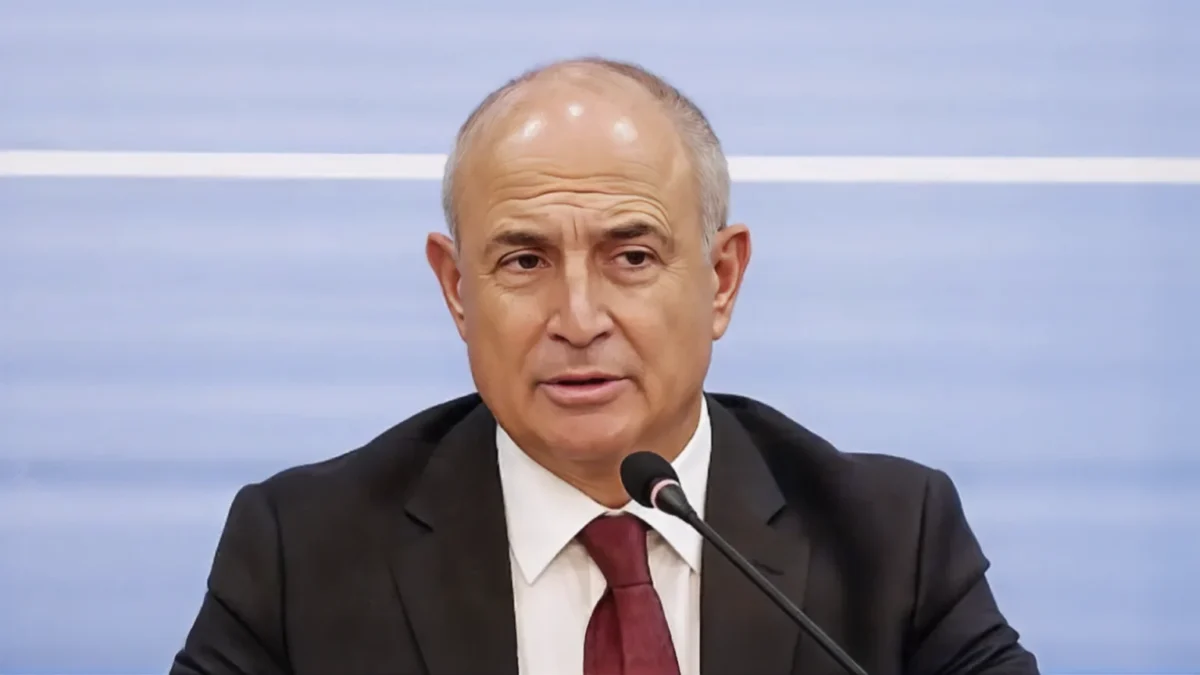
May 31, 2025: Hasan Akgün, Mayor of Büyükçekmece District, Istanbul
Akgün, who has served as mayor for nearly 25 years, faces multiple allegations of corruption and abuse of power. Investigators claim he solicited bribes from construction firms in exchange for facilitating building permits and occupancy licenses. These alleged demands reportedly included cash payments, villas, and apartments. Some companies were allegedly pressured to make donations to the local basketball team as a condition for obtaining necessary permits.
Further investigations implicated Akgün’s nephew, Gökhan Akgün, with some properties reportedly registered under his name. Certain payments were also said to have been funneled through companies holding contracts with the municipality.
Following his arrest, Akgün was formally charged with “receiving bribes” and “extortion through coercion” and was detained. His deputy, Ömer Kazancı, was also arrested in connection with the same investigation.

June 6th, 2025: Ahmet Şahin, Acting Mayor of Büyükçekmece District, Istanbul
Elected by the CHP-controlled municipal council to replace Hasan Akgün, Ahmet Şahin’s tenure was short-lived. His name soon emerged in connection with businessman Aziz İhsan Aktaş. Şahin is accused of accepting bribes in exchange for facilitating municipal contracts and payments to companies linked to Aktaş. Prosecutors allege he received cash payments on behalf of individuals designated by the president of the Istanbul Municipality Sports Club, identified as F.K., based on testimony from suspects cooperating under a plea deal.

May 31, 2025: Hakan Bahçetepe, Mayor of Gaziosmanpaşa District, Istanbul
Bahçetepe is accused of accepting bribes in exchange for facilitating municipal contracts and payments to companies linked to businessman Aziz İhsan Aktaş. Prosecutors allege he received cash payments on behalf of individuals designated by the president of the Istanbul Municipality Sports Club, identified as F.K., based on testimony from cooperating suspects under a plea deal.
In his statement to authorities, Bahçetepe denied all allegations, insisting he had no role in municipal tender processes, had never met with contractor firms, and had not instructed anyone to do so on his behalf. He also rejected claims of any knowledge regarding a $1 million payment allegedly made to his spouse, Celal Tekin, and CHP parliamentarian Burhanettin Bulut, as asserted by Aktaş.
Bahçetepe detailed his personal assets, noting that he has lived in a modest apartment owned by his aunt in Gaziosmanpaşa since 2012. He acknowledged owning agricultural land in Babaeski, Kırklareli, acquired after his 2022 wedding, and reported roughly 300,000 TL (about $7,200) in a stock trading account and 200,000 TL (about $4,800) in a private pension account. He denied owning any additional properties or assets.

May 31, 2025: Muhittin Böcek, Mayor of Antalya
Prosecutors allege that four contractors—identified as A.A., B.C., M.Y., and Y.Y.—paid a total of 195 million TL (around $4.8 million) in bribes to Antalya Mayor Muhittin Böcek and his son, Mustafa Gökhan Böcek, to secure municipal project payments. According to the investigation, the funds were routed through a currency exchange bureau, converted into gold, and used to purchase luxury vehicles. Authorities have since appointed trustees to oversee one currency exchange bureau and two jewellery businesses linked to the transfers.
Mustafa Gökhan Böcek is accused of soliciting payments from businessman Y.Y. to support his father’s 2024 election campaign and persuading him to sign a municipal project contract to obscure an 8.5 million lira (approximately $210,000) payment. He is also alleged to have had a luxury property purchased by Y.Y. during divorce proceedings instead of paying alimony. Prosecutors cite bank records and Financial Crimes Investigation Board reports as evidence.
Böcek has denied all allegations, stating that he never met with contractor firms and did not instruct anyone to hold meetings on his behalf.

July 4, 2025 Niyazi Nefi Kara, Mayor of Manavgat District, Antalya
Prosecutors allege that Kara orchestrated a sprawling corruption network involving bribery, embezzlement, extortion, and misuse of public funds, based on four months of surveillance, financial records, and secretly obtained video. A key piece of evidence shows Deputy Mayor Mehmet Engin Tüter receiving €110,000 in cash concealed inside a baklava box from an informant. In another widely circulated police video, officers arrive at Tüter’s office to arrest him; at their request, he opens the box, stares at the cash, and insists he had no knowledge of its contents.
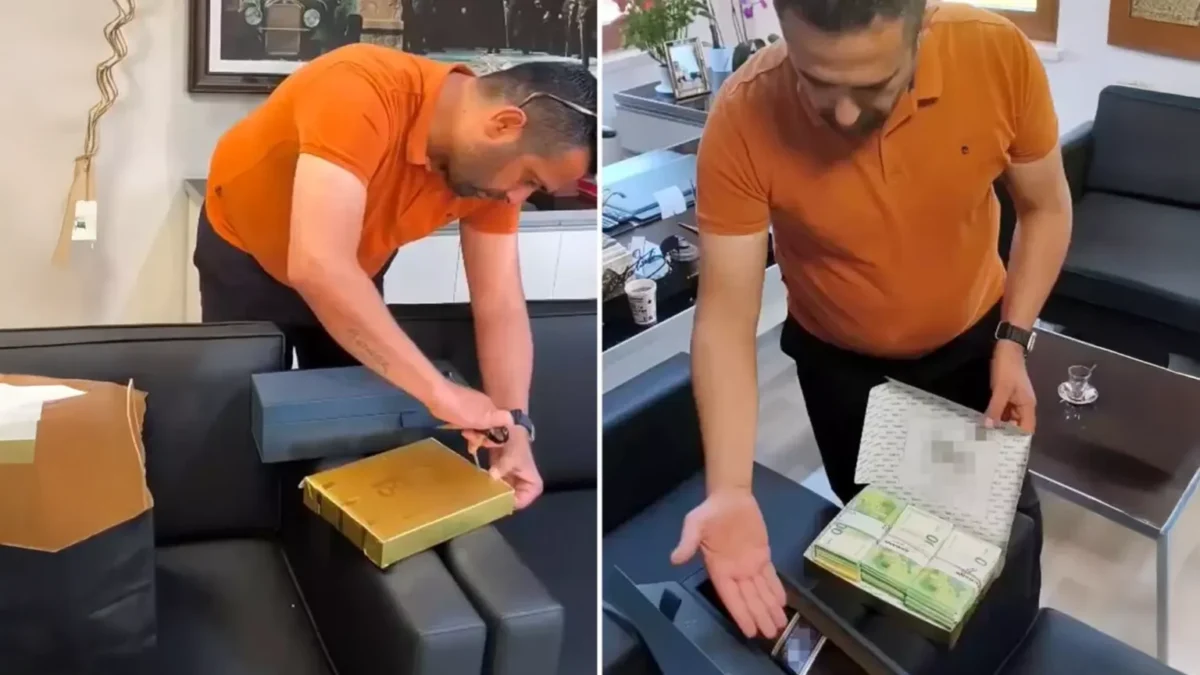
Defense lawyers argue the footage amounts to entrapment. According to the indictment, municipal permits for construction, renovation, and occupancy were deliberately delayed until businesses paid bribes. Prosecutors claim a ₺1 million payment suppressed a complaint filed through the state-run Presidential Communication Centre, while another potential fine of up to ₺60 million was dropped after alleged payments of €350,000 and ₺1 million.
Other alleged bribes include €500,000 linked to shopping centre licensing, a €750,000 villa in Side allegedly purchased for Kara by hotel investors, and the free demolition and reconstruction of a villa in Kumköy, with costs passed to local hoteliers. Investigators further claim municipal subsidiaries, shell companies, and sports clubs were exploited to siphon funds, with total losses estimated at up to ₺800 million (around $24 million).

July 5, 2025: Zeydan Karalar, Mayor of Adana
Prosecutors allege that Karalar, mayor of Seyhan in Adana, solicited illicit payments from contractors working with the municipality. The charges are based on testimony from businessman Aziz İhsan Aktaş, who is cooperating under a plea deal after admitting to leading a criminal network.
Authorities claim Karalar demanded 4.5 million Turkish lira from contractor Baki Nugay to expedite municipal project payments, with the funds allegedly routed through a municipal department head.
Karalar denies the allegations, acknowledging only that he knew Nugay and that the company had contracts under the previous administration. He called the claims “completely slanderous.”
Karalar was formally charged and arrested on 8 July 2025. His legal team has filed a suit seeking to overturn his suspension from office, arguing the decision lacked proper legal basis.

August 15, 2025: İnan Güney, Mayor of Beyoğlu District, Istanbul
The Istanbul Prosecutor’s Office announced that, alongside Güney, 44 individuals had been issued arrest warrants on charges including fraud, bribery, abuse of office, and unlawful acquisition of personal data. Those detained include Güney’s chief of staff, bodyguard, press office head, senior officials at two municipal companies—Medya A.Ş., which manages the municipality’s media operations, and Kültür A.Ş., responsible for cultural events—and Yiğit Oğuz Duman, a senior adviser to Istanbul’s imprisoned opposition mayor, Ekrem İmamoğlu. Prosecutors allege the suspects were part of a “criminal organisation” purportedly led by İmamoğlu’s jailed spokesman Murat Ongun and a fugitive, Emrah Bağdatlı, with nine accused of overseeing the group’s social media operations.
Among the 35 suspects, including Güney, officials linked to Medya A.Ş. and Kültür A.Ş. are said to have engaged in fraudulent activities within the Istanbul Metropolitan Municipality, including operating a criminal organisation for financial gain, bribery, abuse of office, defrauding public institutions, and illegally acquiring personal data.
The arrests followed a statement from jailed businessman Murat Kapki on 7 August, alleging that Mayor Güney maintained close ties to İmamoğlu and profited from the city’s billboard and outdoor advertising operations. Kapki claimed Güney influenced municipal advertising allocations through Serkan Öztürk, described as an intermediary for awarding contracts to favoured firms. He also alleged that, while in prison, he was approached by lawyer and former AKP executive Mücahit Birinci, who offered him a reduced sentence or release if he signed a prewritten statement accusing CHP figures of corruption, paid $2 million, and provided false testimony—offers Kapki says he ultimately refused, stating in his second testimony that he had been coerced into giving false statements.
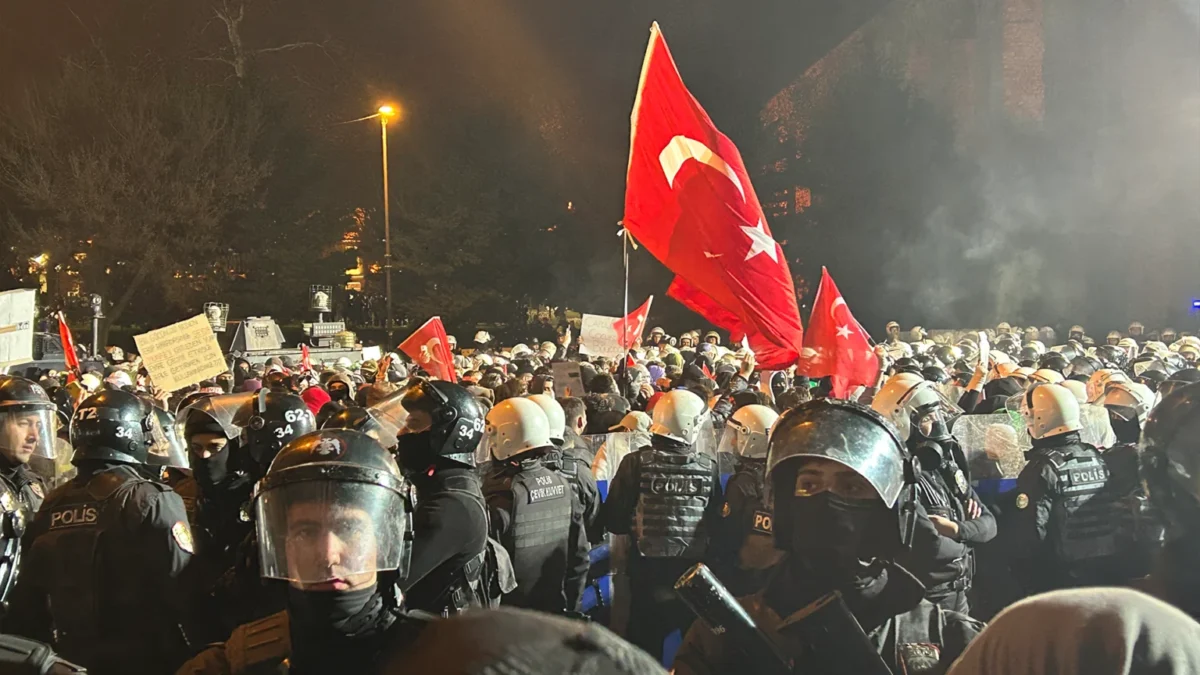
Blowback
Since the arrest waves started in late October 2024, Turkish authorities have detained more than 500 individuals connected to the CHP, with over 200 formally taken into custody. The process, however, has been far from straightforward.
Mass protests erupted across Turkey following the detention of Ekrem İmamoğlu, reflecting widespread public concern over what critics described as politically motivated legal actions, especially given that his arrest came shortly after announcing his bid for CHP’s presidential nomination and just one day after the annulment of his university degree.
Local governors, appointed by the central government, swiftly banned all demonstrations in major cities. Despite the restrictions, tens of thousands of protesters took to the streets in Istanbul, Ankara, and İzmir, with police forcibly dispersing much of the crowds.
Opposition leaders argue that, despite government assurances of judicial independence, the proceedings were orchestrated by President Erdoğan to undermine his main political rival, who consistently leads him by around 10 points in poll averages.
Medyascope’s editor-in-chief Ruşen Çakır characterized the crackdown as Erdoğan’s greatest mistake:
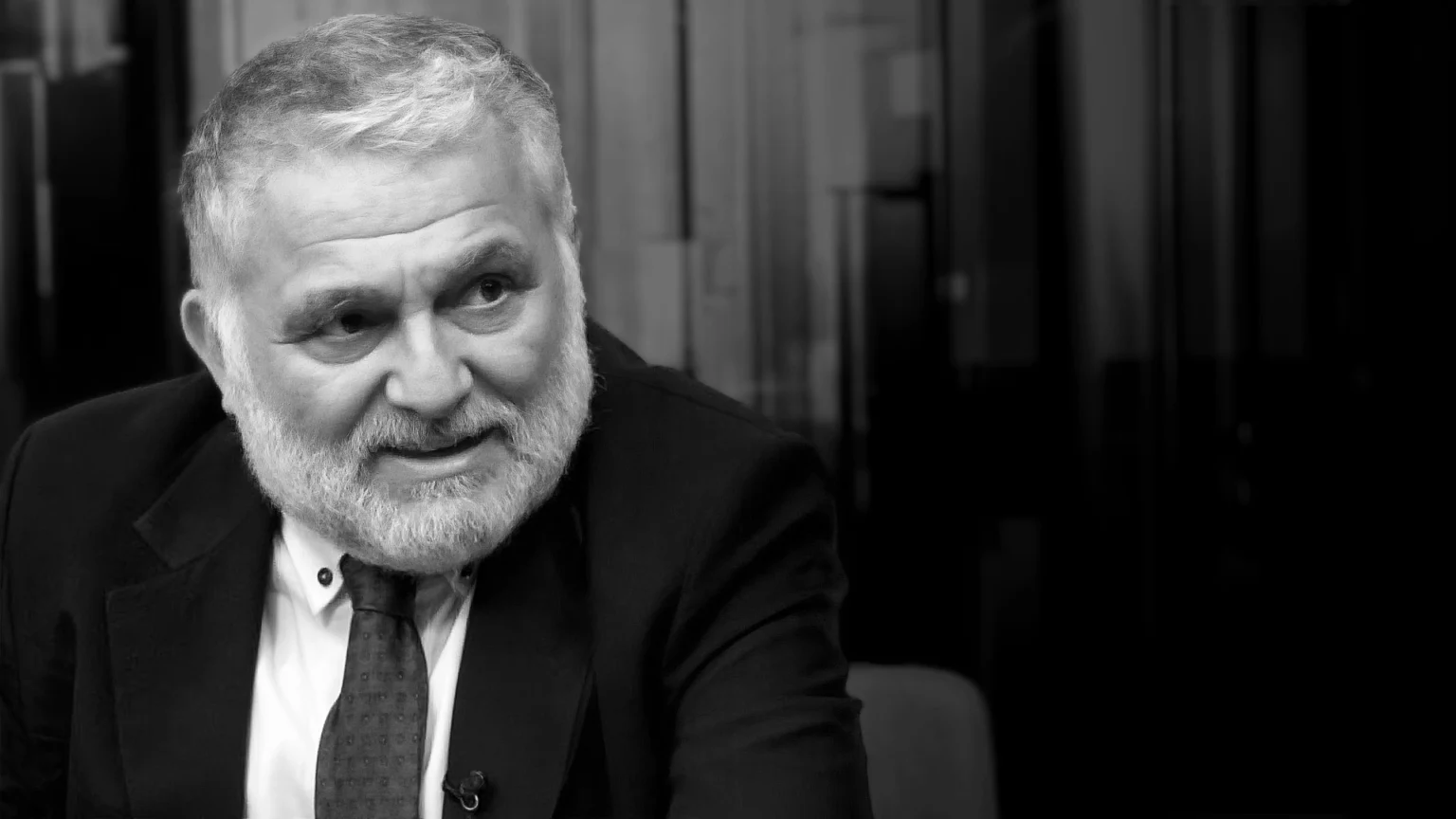
Since İmamoğlu’s arrest, CHP leader Özgür Özel has been holding rallies almost every week, drawing tens of thousands of attendees. Since the rallies began, Özel has faced two investigations for allegedly “threatening” or “insulting” Chief Prosecutor Akın Gürlek. As both the CHP Chair and a sitting member of parliament, he enjoys a level of immunity not afforded to mayors, making imprisonment unlikely. Özel narrowly avoided being sidelined as party chief when the government alleged that his 2023 election was tainted by potential fraud; had the government succeeded, it could have appointed a trustee to lead the party itself. Özel was able to subvert the potential appointment of a trustee by holding another election, which he won handily.
In an interview with Ruşen Çakır, Özel laid out what he described as the ultimate goals of the crackdown:
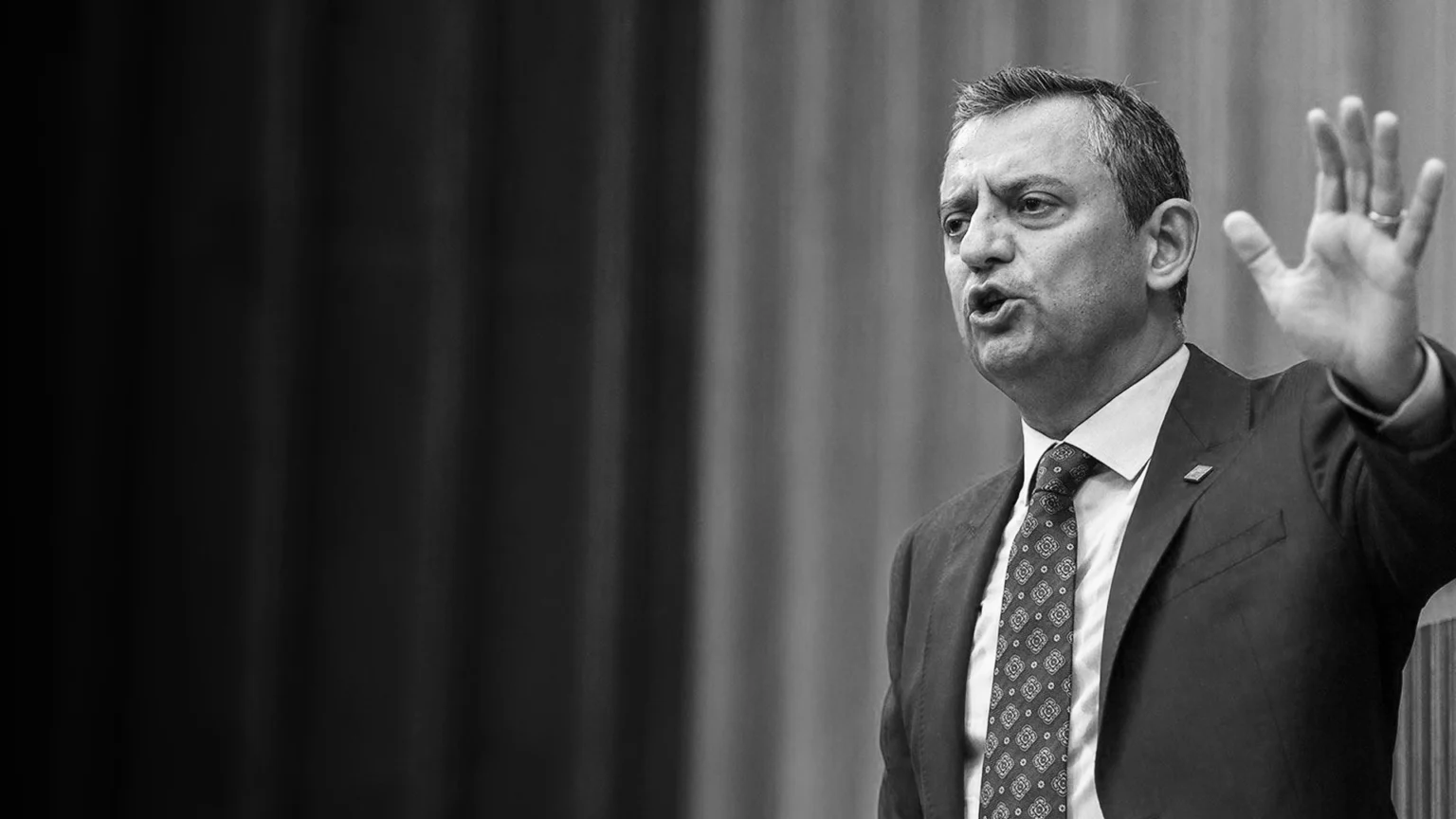
Despite the AKP’s insistence that the waves of arrests are part of a broader anti-corruption campaign, the fact that they have focused almost exclusively on CHP-run municipalities has fueled widespread scepticism among voters. Ruşen Çakır argues that even the party’s own conservative supporters are unconvinced:
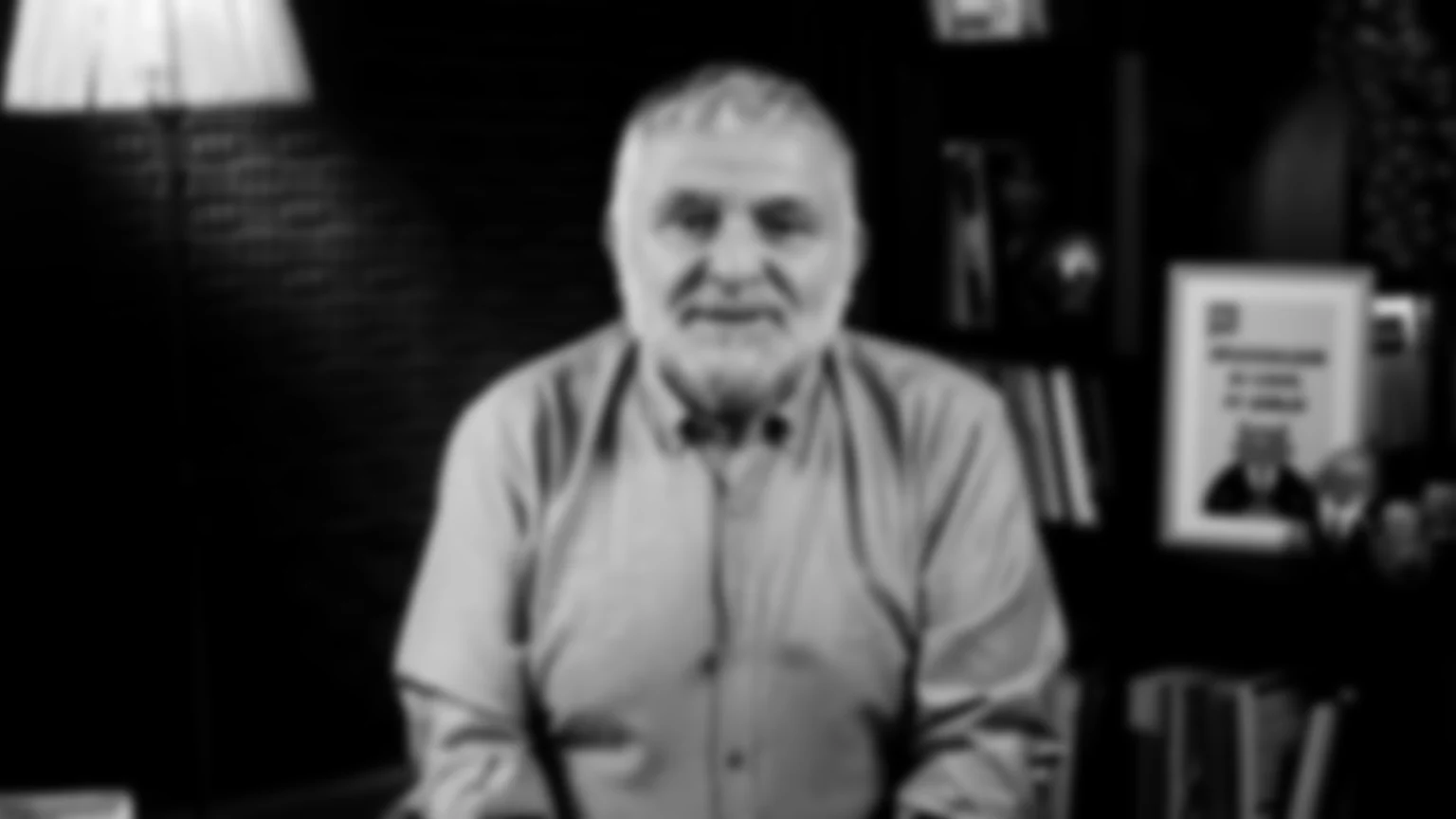
While the immediate protests have subsided, Özel’s continued leadership of the CHP and the ongoing visibility of opposition rallies suggest the episode may have bolstered his profile and kept the party politically mobilized, raising questions about the broader impact of the arrests on Turkey’s electoral landscape—particularly as polls indicate that Erdoğan’s near quarter-century rule may be facing unprecedented challenges.





